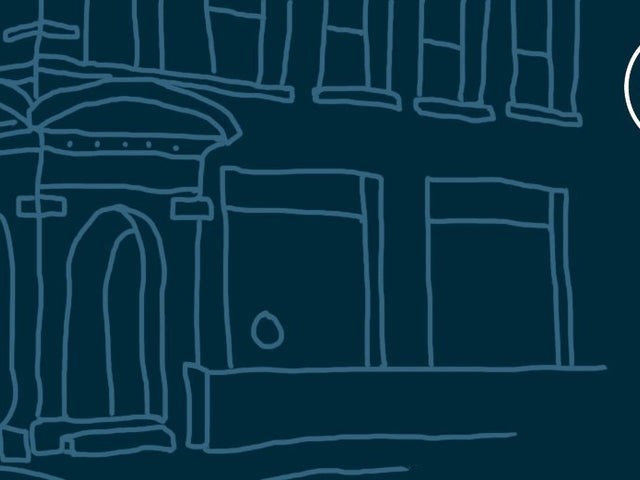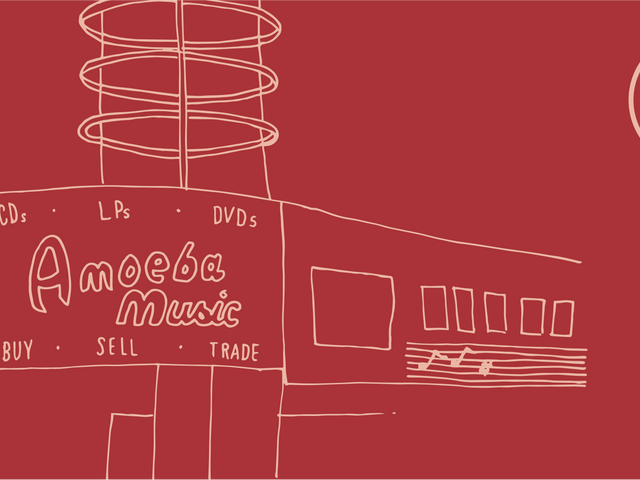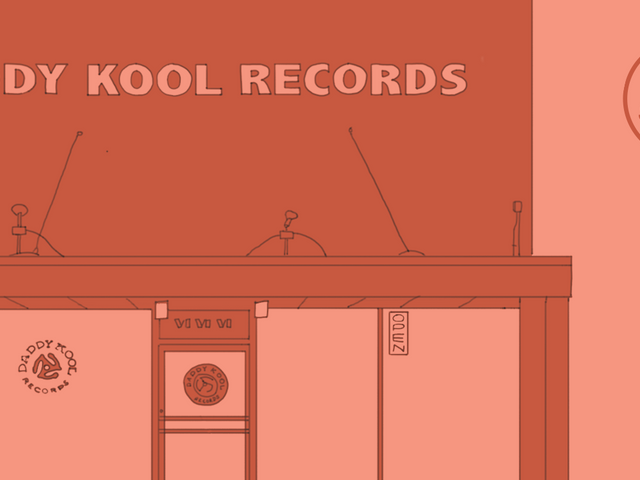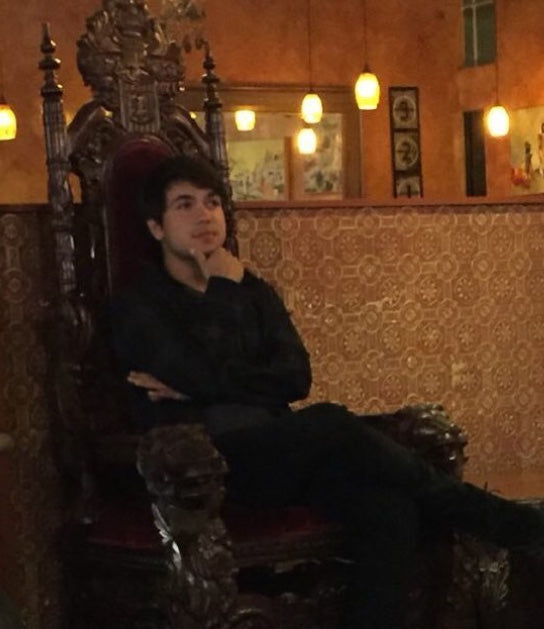De 50 bästa skivbutikerna i Amerika är en essäserie där vi försöker hitta den bästa skivbutiken i varje stat. Dessa är inte nödvändigtvis skivbutiker med de bästa priserna eller det djupaste urvalet; du kan använda Yelp för det. Varje utvald skivbutik har en historia som går bortom vad som finns på dess hyllor; dessa butiker har historia, främjar en känsla av gemenskap och betyder något för de människor som besöker dem.
Boston law regarding public noise levels or noise “pollution” isn’t very different from other major cities, but there has always seemed to be a personal vendetta on what can get by and what can’t. The Boston Municipal Code, which outlines the regulations of noise pollution, was updated with a new ordinance in 2012 containing phrasing that seems to target the Boston music scene — which has long had a thriving DIY underground — like “loud parties and gatherings cause disruptive behavior leading to sleep disturbances and anxiety creating a substantial disturbance of the quiet enjoyment of the neighborhood.” Like I said before, cities often have similar noise ordinance laws and that’s no surprise, but when you put this next to reports that cops are going undercover on Facebook to figure out addresses to house parties that they later will shut down, the target on the DIY artist’s backs seems a lot bigger here than anywhere else.
To better understand this scenario, it is best to take a step back and look at the logistics of living in Boston as someone in a band and as somebody who runs a business. Police officers did not just realize one day that they wanted to ruin all of the fun happening in basement shows. It was a gradual occurrence brought on by many factors including high cost of living. Venue owners cannot simply cut deals with smaller, no-name DIY bands to perform because they have an overhead to cover and they have drinks to sell. To sell drinks, you need traffic. (Obviously.) But more importantly, you need a liquor license, which in Boston will run your company around $450,000 due to a "liquor license" cap that was put in place years before anyone involved in this scenario was around. A venue needs their alcohol sales to turn a profit, but that's a hefty barrier of entry that will keep people away. Aside from a few gems, non-profits and quaint studio spaces, this leaves hardly any space for these bands to perform. They want a space for all ages to able to perform and promote their music without worrying about cost and drink sales. They want a place that can host a gathering of like-minded and eclectic individuals without the stress of “Will I be able to cover the cost of booking this show?”

But the culture never stops, and with this problem came the solution that bloomed in the underground: more basement shows. Basement shows had venue names and locations were on a need-to-know basis. It’s worth the adventure and networking to find these shows and be a part of the culture. You need to know that guy who knows a guy that will give you the address of an Allston house that houses six people. And of course, they’re a mix of Berklee grads and experienced musicians and know how to perfectly engineer the sound systems in these tight-spaced basements to give a full band the right sound, but by also not being over-the-top loud. While there may have been drinking and other sorts of inebriation involved, the intent of these shows were never to be a “party” and that was half of the reason they were kept secret. The last thing these hosts would want is a random person ruining the fun for everyone with a drunken tirade. Passion and loyalty are common theme among the scene.
While these shows may be in neighborhoods where it’s expected to hear a band practicing at any given time, there’s always someone who will see it as noise pollution and as breaking the law. The neighborhoods in Boston are pretty tightly packed. (Because if the rent is so high, why not put more apartments and houses instead of anything else that would be useful?) And I’m sure oftentimes people may be trying to sleep 50 feet away from where one of these shows may be happening. With more basement shows popping up, more complaints are coming in. With more complaints, there are more irritated cops. And this domino effect has crafted a rebellious, mobile DIY music scene that has a passion that continues to burn, despite having underground venues being shut down by cops.
So it’s only right that the best record store in Boston, and Massachusetts in general, is underground. In Your Ear! is located underneath a coffee shop in between Allston and Boston and is as much of a gem as it is a cultural reflection of the music scene in this region.
Although there is a sign outside, In Your Ear! is essentially tucked away for you to find. Once you walk down the stairs and realize that there’s more to the underground unit besides the Brazilian jiu-jitsu school, you have reached the wonderland. It's a portal to a music lover and hoarder’s paradise. At first glance, it’s intimidating to see the amount of inventory this store has. Some of the 7” records are stacked sleeveless in a somewhat accidental decorative manner as soon as you walk in. But once you take a quick scan and stroll around, you realize that this is a well-orchestrated and organized mess. For the most part, most of the store is labeled. If not by artist or band, they’re by region, genre or label. Which isn’t too unique, but it is when you take into consideration the clutter of goodies they have.
The adventure through the multiple haystacks is encouraged, mostly by the co-owner Reed Laddison. He is ready to help and has always been there when I've come by. Reed doesn’t snob his way into your music taste — unless you want him to. He’s been doing this for more than half of his life and will help you find what you need in a hospitable manner.
Reed’s charismatic personality is present throughout the store and there’s more to dig for besides records. Shirts hang from the ceilings like wall beads reading random brands, slogans, local companies and more. It seems like they try to aim to sell band T-shirts, but enjoy selling the occasional artsy shirts that read whatevers like “I (Heart) Zombies.” They sell giant vintage movie posters from the ’70s and ’80s, including National Lampoon’s European Vacation and Starship Invasion. Their VHS and DVD collection holds no regard for critical acclaim. They have the entire Godfather series on VHS, while also having You, Me & Dupree on DVD. But for $1, you should be grabbing both anyway.
It’s tough to leave the store. Any way out has more items to dig through. Even when you’re checking out, there are reprinted concert posters in a bin in front of you for $8. They have an Aerosmith & Deep Purple tour poster, The Beatles live in London, and a bunch of other neat ones. If you finally commit to leaving, you’re allowed to grab a free pin, akin to freebie band merch, to remind you of the Boston basement experience you had.
Passionate people in the creative world deserve a space to showcase their interests. Like the Boston DIY scene creating their own home to defeat the boundaries of entrance into live performances in an expensive city with over-enforced regulations, Reed has In Your Ear! He ran his shop through a time when vinyl was projected to die because that’s what he wanted to do. His store is a showcase of that. It’s cramped with Reed’s vision and personality, similar to a merch table squished in a corner that looks like it has room for two shirts, but somehow fits 10 shirts and a few handmade patches. The size, location and structure of the space doesn’t matter to the local Bostonian crate diggers and merchandise enthusiasts because they come for authenticity, and to feel comfortable in the face of someone’s passion that mirrors theirs.
Ryan Magnole bor i Boston och är grundare av bloggen som blev till varumärket EveryDejaVu, medgrundare av konsttidskriften Handcastle Magazine och värd för podcasten Glass One-Third Empty.
Gå med i klubben!
Gå med nu, från 44 $Exklusiv 15% rabatt för lärare, studenter, militärmedlemmar, hälsoarbetare & första hjälpare - Bli verifierad!







